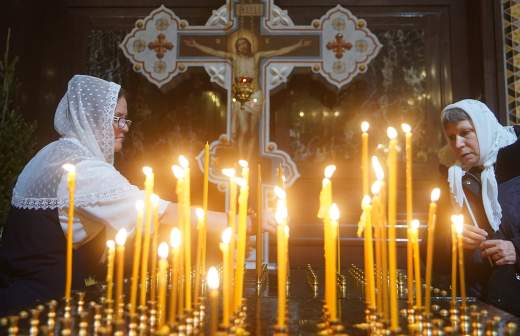December 14 - Naumov's Day: history and traditions of the holiday, folk omens

On December 14, the Orthodox Church remembers St. Nahum, one of the 12 minor prophets of the Old Testament, who is believed to help in teaching. It was about him in the olden days it was said: "Naum instructs the mind". In the folk calendar the holiday is known as the Day of Naum the Literate, or Naum's Day. In 2024 the celebration falls on Saturday. About what traditions and omens are associated with it, tell "Izvestia".
History of Naum's day, celebrated on December 14
According to the scripture, Nahum was born in the north of Israel in the VII century BC. He became famous as the author of a book of prophecies, predicting a number of events, including the destruction of the main Assyrian city of Nineveh for its iniquities, the destruction of the kingdom of Israel and blasphemy against the Most High.
This prediction echoed a dire prophecy that had been uttered by the prophet Jonah about 100 years before the events in question. In the end both predictions came true. Almost nothing is known about other facts of the saint's life. According to tradition, he died in the 45th year of life and was buried in his native land.
In Russia, Naum began to be honored in the XVII century, when church books were printed en masse, and the first schools appeared in churches and monasteries. So the name of the saint became associated with teaching. He is considered the patron saint of scientists, teachers, writers and all those who strive for spiritual development and enlightenment.
How Naum's Day was celebrated in Russia
In pre-revolutionary Russia, the Day of Remembrance of the Prophet Naum was the analog of the modern Teacher's Day. On this day, the parents of students brought teachers, making them gifts and setting tables with all sorts of viands. But since Naum's day fell during the Christmas fast, the dishes were prepared fast.
Also Naumov's day was considered a favorable day to send children to school. By this time the harvest had been gathered and the offspring had practically no housework. The adults coped with the rest of the work without their help.
In order to study successfully, villages held a peculiar ritual. It was necessary to hit the child three times with a rod. The blows were symbolic, setting them up for obedience and diligence in learning new knowledge.
On the day of Naum the Literate, our ancestors looked at weather omens. If the snow fell in the form of flakes on the holiday, it meant that inclement weather would follow. And clear weather without heavy precipitation heralded that the winter would be moderate.
What you can and can not do on Naum's day on December 14
Most of the prohibitions in effect on Naumov's day were related to learning. For example, it was impossible to brag about good grades, otherwise, as believed in the olden days, many bad marks would soon follow. It was forbidden to praise a person too much. It was believed that so you can jinx him and success will have to get again.
Another prohibition is related to reading books while eating, because in such an activity not only the taste of food is not felt, but also "eat" all the knowledge gained. In addition, satiety comes later, which means that there is a chance to eat more than you should.
A number of restrictions are prescribed for believers. Since the Christmas fast continues on Naum's day, eggs, meat and dairy products should be excluded from the diet. Also, you can not be lazy and spend the day in idleness, otherwise you can lose luck.
Earlier in December in Russia celebrated Yuriev Day. "Izvestia" told, what is remarkable about this holiday.
Переведено сервисом «Яндекс Переводчик»

